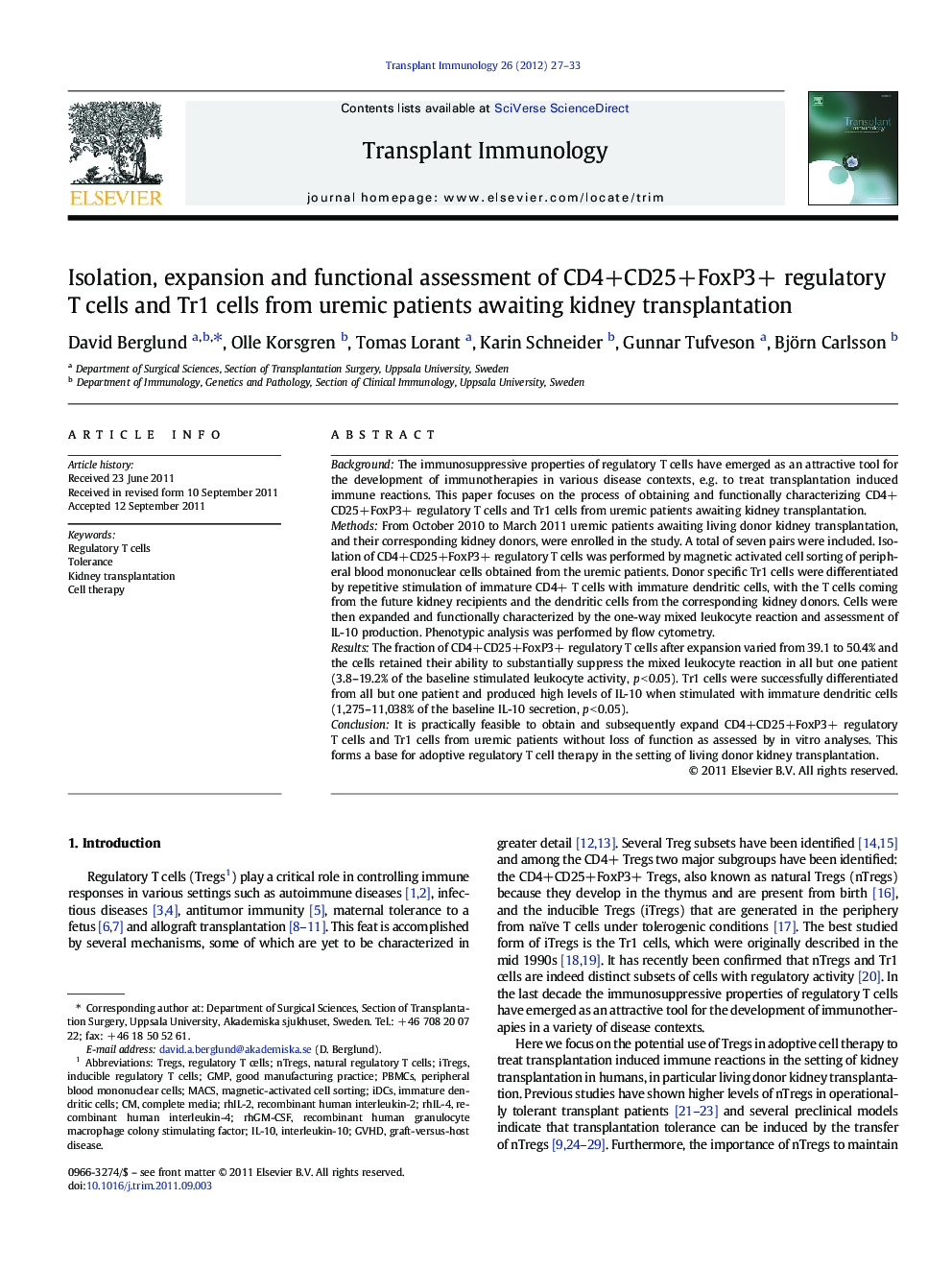| Article ID | Journal | Published Year | Pages | File Type |
|---|---|---|---|---|
| 3392228 | Transplant Immunology | 2012 | 7 Pages |
BackgroundThe immunosuppressive properties of regulatory T cells have emerged as an attractive tool for the development of immunotherapies in various disease contexts, e.g. to treat transplantation induced immune reactions. This paper focuses on the process of obtaining and functionally characterizing CD4+CD25+FoxP3+ regulatory T cells and Tr1 cells from uremic patients awaiting kidney transplantation.MethodsFrom October 2010 to March 2011 uremic patients awaiting living donor kidney transplantation, and their corresponding kidney donors, were enrolled in the study. A total of seven pairs were included. Isolation of CD4+CD25+FoxP3+ regulatory T cells was performed by magnetic activated cell sorting of peripheral blood mononuclear cells obtained from the uremic patients. Donor specific Tr1 cells were differentiated by repetitive stimulation of immature CD4+ T cells with immature dendritic cells, with the T cells coming from the future kidney recipients and the dendritic cells from the corresponding kidney donors. Cells were then expanded and functionally characterized by the one-way mixed leukocyte reaction and assessment of IL-10 production. Phenotypic analysis was performed by flow cytometry.ResultsThe fraction of CD4+CD25+FoxP3+ regulatory T cells after expansion varied from 39.1 to 50.4% and the cells retained their ability to substantially suppress the mixed leukocyte reaction in all but one patient (3.8–19.2% of the baseline stimulated leukocyte activity, p < 0.05). Tr1 cells were successfully differentiated from all but one patient and produced high levels of IL-10 when stimulated with immature dendritic cells (1,275–11,038% of the baseline IL-10 secretion, p < 0.05).ConclusionIt is practically feasible to obtain and subsequently expand CD4+CD25+FoxP3+ regulatory T cells and Tr1 cells from uremic patients without loss of function as assessed by in vitro analyses. This forms a base for adoptive regulatory T cell therapy in the setting of living donor kidney transplantation.
► We obtain CD4+CD25+FoxP3+ regulatory T cells and Tr1 cells from uremic patients. ► Regulatory T cells from uremic patients can be expanded without loss of function. ► This forms a base for adoptive regulatory T cell therapy in kidney transplantation.
